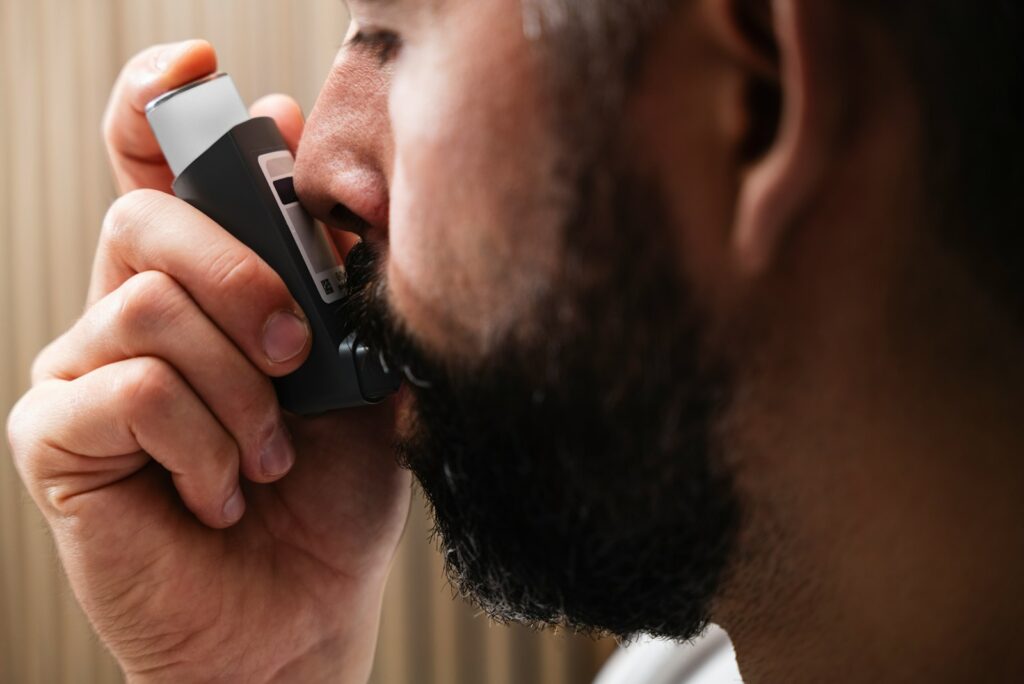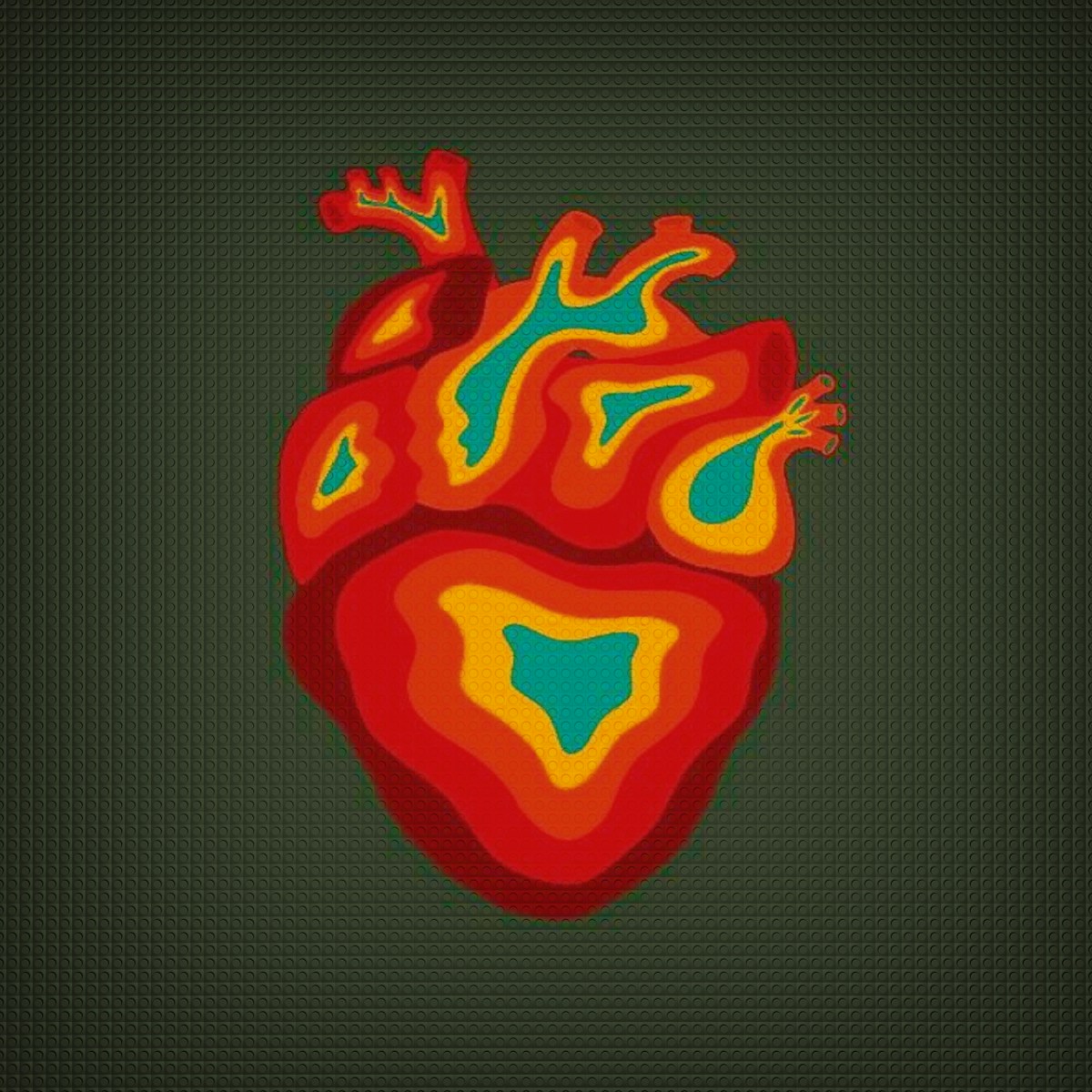
Every June, Men’s Health Month serves as a powerful reminder for men to prioritize their health. While many men pride themselves on toughing it out, ignoring warning signs can lead to serious, sometimes life-threatening conditions. Early detection and preventive care are essential to long-term well-being. Research shows men are more likely than women to avoid—or delay—necessary medical care, even when their symptoms disrupt their lives or become chronic.
The repercussions of avoiding medical care become riskier—even potentially deadly—as men age. This is especially the case when it comes to the risk and prevalence of cardiovascular disease, which is the top killer of men in the U.S. Dr. Steven Lamm, director of the Preston Robert Tisch Center for Men’s Health at NYU Langone, urges men to become familiar with their baseline numbers, including blood pressure, cholesterol and blood sugar, which are essential for spotting current or future heart disease. It’s critical to take new and unexplained health symptoms seriously.
Don’t ignore your wellness, and don’t give your wellness, or your health, a three-month break. As Dr. Antonio Fernandez, medical director of the cardiac intensive care unit and preventive cardiology at Hartford Hospital, always reminds patients, timing is key. With some of the cardiac conditions, the symptoms can progress over time, so obviously, if there were to be a cardiac problem, catching that early would be better than waiting too long and then dealing with a more severe problem. Here are 14 common health warning signs men should never ignore.

1. **Unexplained Weight Loss**: Losing weight without trying may sound positive, but it can be a sign of underlying illness, including diabetes, hyperthyroidism, gastrointestinal conditions, or certain cancers. When you lose weight without actively changing your diet or exercise routine, it warrants attention.
A sudden drop of more than 4–5 kg without making lifestyle changes is specifically called out as a reason to seek medical advice. It’s important not to dismiss this as a simple benefit, as it could be your body signalling a more serious issue that requires investigation. Paying attention to your body’s normal state and noticing significant deviations is a key aspect of proactive health management.

2. **Frequent/Excessive Fatigue**: Feeling worn out after a sleepless night or a stressful day is certainly normal for anyone. However, unusual fatigue and sleeplessness might be early warning signs of a heart attack, as highlighted by a survey published in the journal Circulation. Some people suddenly get profound waves of tiredness, which may represent arrhythmia or exhaustion, potentially indicating an abnormal heart rhythm problem, according to Dr. Segal.
If fatigue is persistent and affecting your daily life, despite adequate rest, it may indicate a range of conditions, including sleep apnea, low testosterone, depression, heart disease, or other medical conditions. Research supports the seriousness of this symptom; one study found that men with moderate-to-high levels of exhaustion had a 2.7-fold increased risk of heart attack within five years and a 2.25 higher risk within ten years. The study also found a strong correlation between high blood pressure and moderate-to-high levels of exhaustion in two-thirds of the cohort.
Additionally, Dr. Lamm notes that fatigue is related to other serious conditions in men and is especially associated with depression. Mental health is intrinsically tied to physical health, and research finds that, in particular, depression is strongly associated with a higher risk of heart attack and stroke. The good news is that studies also find treating depression can directly affect heart attack risk since depression often worsens lifestyle habits that are related to cardiovascular disease, such as eating a poor diet and consuming alcohol. So, don’t just power through persistent tiredness.

3. **Sweating Excessively (Cold Sweats)**: Unless you’re going through menopause (which is not applicable here but provides context for normal hormonal changes) or have just exercised intensely, breaking out into a cold sweat or perspiring excessively could signal a heart attack. This isn’t just feeling a little warm; it’s often described as a cold sweat.
During a heart attack, your nervous system activates a “fight or flight” response that puts you in survival mode, and this physiological reaction could lead to excessive sweating. This type of sweating is often unexpected and doesn’t seem to be related to the surrounding temperature or your activity level. Paying attention to such unusual physical responses is crucial.

4. **Unusual Breathlessness / Change in Exercise Tolerance**: If you’ve been finding it harder and harder to climb the stairs, it is important to seek medical attention. Even though this doesn’t necessarily mean you’re about to have a heart attack at that moment, it could be a sign your heart is in danger. Dr. Dawkins explains that it can mean your heart isn’t pumping properly or you have a narrowed or leaking valve.
Breathlessness can be insidious, creeping up on the patient over time. Dr. Dawkins mentions that when he sees patients with valve disease, they often initially say they aren’t breathless, but if asked to compare their current ability to a year ago, they usually acknowledge they are a lot worse. Family members often recognize a problem first, perhaps noticing a patient sounds short of breath when they answer the phone. Lying flat can also make breathless those with fluid building up in the lungs, leading some patients to say they prefer to sleep in a chair because they don’t like lying flat. Waking up at night out of breath, needing more pillows, could suggest your heart isn’t pumping as well as it should, advises Dr. Muthumala, indicating you’re propping yourself up for this reason and should get it checked out.
This ties into a change in exercise tolerance. We all have days when energy levels fluctuate, and a few flights of stairs or a routine workout might feel harder. However, when you notice that exertion fatigue is more frequent and different than your normal baseline, it’s time to see a doctor. Dr. Lamm points out this can be a very important signal that you’re blocking off your coronary arteries. Tracking your fitness performance, perhaps with a smartwatch, can help you monitor these changes and raise red flags if there’s a sudden or gradual shift in your cardiovascular exercise levels. Dr. Fernandez stresses that it’s critical to take action if exercise intolerance is coupled with other symptoms such as lightheadedness and chest discomfort.

5. **Feeling Lightheaded/Dizziness**: Many everyday situations can make us feel dizzy, such as skipping a meal or standing up too fast from a seated or lying position. While common, dizziness or light-headedness should not be ignored when it occurs alongside other concerning symptoms.
Specifically, dizziness or light-headedness, together with chest pain and shortness of breath, may signify a decrease in blood volume and a drop in blood pressure. This combination is particularly concerning because it could mean a heart attack is on its way. If you experience lightheadedness or dizziness in conjunction with these other critical signs, seeking immediate medical evaluation is vital.
6. **Changes in Bowel Habits**: Paying attention to your body’s regular functions includes monitoring your bowel habits. Significant or persistent changes here can be a warning sign that should not be overlooked. These changes can include alterations in the frequency of bowel movements or the consistency of the stool.
According to renowned oncologist Dr. Prithvi Singh Dwivedi, Max Hospitals, such changes, along with persistent abdominal discomfort such as cramps, gas, or pain, and a feeling that the bowel does not empty completely, are some of the warning signs and symptoms of colon cancer. Colon cancer, also known as colorectal cancer, is a form of the disease that usually originates in the large intestine or rectum. While not all changes in bowel habits indicate cancer, any persistent deviation from your norm warrants medical attention.

7. **Changes in Urination**: The process of urination can provide important clues about the health of your urinary tract and prostate. Noticing changes in how you urinate should not be ignored, as they can indicate various underlying conditions ranging from infections to more significant issues. These changes can manifest in several ways that are noticeable in daily life.
Specific changes to be aware of include frequent urination, a weak urine stream, difficulty starting or stopping the flow, or the presence of blood in the urine. The context highlights that these symptoms may be signs of prostate enlargement, urinary tract infections (UTIs), or kidney problems. For men, particularly those over 40, the prostate gland can become enlarged, leading to urinary issues. While UTIs can affect men, they are sometimes less common than in women but still require attention. Kidney problems can also impact urination patterns.
Given these potential links, men over 40 are advised to pay close attention to changes in urination and get regular prostate checks. Identifying the cause of these symptoms is crucial because conditions like prostate enlargement or kidney issues, while potentially benign initially, can worsen over time if left untreated. Blood in the urine, in particular, is a symptom that always requires prompt medical investigation to rule out serious causes.

8. **Persistent Heartburn or Digestive Issues**: Occasional indigestion or heartburn might seem minor, but when these symptoms become recurring or persistent, they can be a signal that something more significant is happening within your digestive system. It’s important to differentiate between a one-off episode after a meal and ongoing discomfort that affects your quality of life.
Recurring indigestion, bloating, or difficulty swallowing are mentioned as potential symptoms. The context explains that these could point to conditions like acid reflux, ulcers, or even gastrointestinal cancer. Acid reflux involves stomach acid flowing back into the esophagus, causing heartburn. Ulcers are sores that develop on the lining of the esophagus, stomach, or small intestine. While these are common conditions, their persistence warrants investigation because, in some cases, similar symptoms can be associated with gastrointestinal cancers.
Therefore, if symptoms such as persistent heartburn, recurring indigestion, noticeable bloating, or difficulty swallowing continue for more than two weeks or if they worsen, seeking a medical assessment is strongly recommended. A healthcare professional can help determine the underlying cause through appropriate tests and recommend the right course of treatment, ensuring that any serious conditions are identified and managed early.

9. **Mood Changes or Depression**: Men are often conditioned to suppress emotional vulnerability, which can lead to mental health issues being overlooked or dismissed. However, significant shifts in mood and persistent feelings of low morale or disinterest are health warning signs that are just as important as physical symptoms and should never be ignored. Recognizing these changes in yourself or encouraging others to do so is a vital step towards well-being.
The context points out that men often ignore emotional symptoms. Specific indicators include irritability, withdrawal from social interactions or activities, a persistent low mood, or a loss of interest in activities that were once enjoyable. These can be signs of depression or anxiety. Mental health is not separate from physical health; the two are intrinsically linked. Research finds that depression, in particular, is strongly associated with a higher risk of heart attack and stroke. This underscores the serious physical health implications of untreated mental health conditions.
Dr. Lamm also notes that fatigue, a symptom discussed earlier, is especially associated with depression in men. The good news, as highlighted, is that support and effective treatment for mental health conditions are available. Studies also find that treating depression can directly affect heart attack risk, partly because depression often worsens lifestyle habits, such as poor diet and alcohol consumption, that are related to cardiovascular disease. Seeking help for mood changes or suspected depression is crucial not only for mental well-being but also for reducing the risk of other serious health problems.

10. **Chest Pain**: Perhaps one of the most well-recognized, yet still sometimes downplayed, symptoms is chest pain or discomfort. While popular culture often depicts a dramatic, crushing pain, the reality can be more varied. Any sensation of pressure, squeezing, or unusual discomfort in the chest area is a serious indication that requires immediate medical attention, as it is one of the most common symptoms of a heart attack in men.
The context emphasizes that a feeling of pressure and squeezing in the chest is a serious indication. This discomfort occurs because the heart muscle is not receiving enough oxygen-rich blood, often due to blocked or narrowed coronary arteries. Consultant cardiologist Dr. Sam Dawkins notes that the sensation might not always be described as “pain”; patients might feel it as a heaviness, like a book resting on their chest. He stresses that if a symptom like this comes on with exertion, it is generally cardiac in nature.
Crucially, experts warn against dismissing chest discomfort or pain. Dr. Lamm urges men not to ignore it or mistake it for other conditions like anxiety attacks or run-of-the-mill digestive problems such as reflux. He states firmly, “Don’t ignore and don’t go to sleep with chest pain, thinking that it’s reflux,” adding, “Do not assume that your chest pain is due to hyperacidity. It can be a really important clue that you’re having a coronary. Do not go to sleep with chest pain, because you may not wake up.” This powerfully underscores the urgency. Regina Giblin, a senior cardiac nurse, advises calling emergency services (like 999 mentioned in the context) immediately if experiencing chest pain or tightness, as it’s treated as a priority. The sooner doctors can open up the arteries and restore blood flow, the better the outcome, as it protects the heart muscle and can prevent cardiac arrest. Therefore, any suspicious chest discomfort demands immediate professional evaluation.
Taking Action: Prioritizing Your Health

Armed with this knowledge, it’s clear that ignoring potential health warning signs is a risky approach. Many of the issues discussed, from cardiovascular concerns to potential cancers and mental health challenges, are most treatable when detected early. The good news is that taking action is simpler than you might think. Don’t delay seeking medical care when you notice persistent or unusual symptoms. Become familiar with your body’s normal state, and be proactive about getting anything that feels off checked out. Timely intervention, as experts repeatedly stress, is key to protecting your long-term well-being. This Men’s Health Month, and every month, make the commitment to put your health first—book that check-up, ask those questions, and address any warning signs head-on.



:max_bytes(150000):strip_icc()/Lindsay-Lohan-Lead-c7954a0abb77468fa58e71c63cabd61c.jpg)
